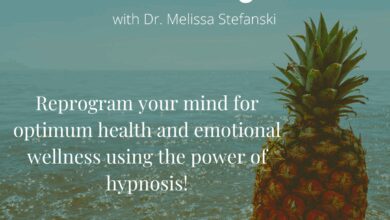Understand chronic stress and daily life

Ever feel like your stress is building and building until… something snaps? Like your heart is racing, you can’t breathe, and the world feels unreal? You’re not alone. Chronic stress is a huge part of modern life, and for many, it can escalate into something more intense: an anxiety attack. It’s scary, but understanding what’s happening – and knowing how to cope – can make a world of difference. This article will break down the connection between everyday stress and anxiety attacks, what they feel like, and practical steps you can take to manage them. We’ll cover everything from recognizing the early warning signs to building a toolkit of calming strategies.
Key Takeaways
- Chronic stress significantly increases the risk of experiencing an anxiety attack.
- Anxiety attacks aren’t the same as panic attacks, though they share some symptoms.
- Recognizing your personal triggers is crucial for prevention.
- Simple breathing exercises and grounding techniques can help manage symptoms during an attack.
- Seeking professional help is a sign of strength, not weakness, and can provide long-term solutions.
- Lifestyle changes like regular exercise, a healthy diet, and sufficient sleep can reduce overall stress levels.
- Building a strong support system can provide emotional resilience during challenging times.
What is Chronic Stress, Really?
We often talk about stress like it’s just a busy schedule or a tough deadline. But chronic stress is different. It’s that persistent, low-grade tension that hangs around for weeks, months, or even years. It’s the feeling of being constantly overwhelmed, even when things aren’t actively going wrong. Think of it like a rubber band stretched too tight for too long – eventually, it loses its elasticity and can snap.
This constant state of alert impacts your body in profound ways. Your nervous system is constantly activated, releasing stress hormones like cortisol. While cortisol is helpful in short bursts (think “fight or flight”), prolonged exposure can wreak havoc on your physical and mental health. It can lead to issues like sleep problems, digestive issues, weakened immunity, and, importantly, increased vulnerability to anxiety. Many people experiencing high levels of stress also report feelings of irritability, difficulty concentrating, and muscle tension.
Anxiety Attacks vs. Panic Attacks: What’s the Difference?
The terms “anxiety attack” and “panic attack” are often used interchangeably, but there are key distinctions. A panic attack is a sudden, intense surge of fear that peaks within minutes. It often feels like you’re losing control, having a heart attack, or even dying. While terrifying, panic attacks typically don’t have a specific trigger.
An anxiety attack, on the other hand, tends to build more gradually and is usually linked to a specific stressor or trigger. It’s an escalation of anxious feelings, rather than a sudden, out-of-the-blue experience. While the symptoms can be similar – racing heart, shortness of breath, dizziness – the underlying cause and experience are different. Understanding this difference can help you better identify what you’re experiencing and how to address it. Someone dealing with social anxiety, for example, might experience an anxiety attack before a public speaking event.
Recognizing Your Triggers
One of the most powerful things you can do to prevent anxiety attacks is to identify your personal triggers. What situations, people, or thoughts consistently lead to feelings of stress and anxiety? Keep a journal and note when you start to feel anxious. What happened right before? Where were you? Who were you with?
Common triggers include work deadlines, financial worries, relationship conflicts, social situations, and even certain places or sounds. Sometimes, triggers are less obvious – a particular smell, a song, or a memory. The more aware you are of your triggers, the better equipped you’ll be to manage them. This self-awareness is a huge step towards taking control.
What Does an Anxiety Attack Feel Like?
Anxiety attacks manifest differently for everyone, but some common symptoms include:
- Physical Symptoms: Racing heart, shortness of breath, chest pain, dizziness, sweating, trembling, muscle tension, nausea, stomach upset.
- Emotional Symptoms: Intense fear, worry, dread, feeling overwhelmed, irritability, feeling detached from reality (derealization) or yourself (depersonalization).
- Cognitive Symptoms: Difficulty concentrating, racing thoughts, feeling like you’re losing control, fear of dying or losing your mind.
It’s important to remember that these symptoms are temporary and not life-threatening, even though they can feel incredibly frightening. Knowing this can help you stay grounded during an attack.
Immediate Relief: Techniques to Use During an Attack
When an anxiety attack hits, it’s natural to want it to stop right now. Here are a few techniques that can help you regain control:
- Deep Breathing: Slow, deep breaths can help calm your nervous system. Try the 4-7-8 technique: inhale for 4 seconds, hold for 7 seconds, and exhale for 8 seconds.
- Grounding Techniques: These help bring you back to the present moment. Try the 5-4-3-2-1 method: name 5 things you can see, 4 things you can touch, 3 things you can hear, 2 things you can smell, and 1 thing you can taste.
- Progressive Muscle Relaxation: Tense and release different muscle groups in your body, starting with your toes and working your way up to your head.
- Positive Self-Talk: Remind yourself that the attack will pass and that you are safe. Challenge negative thoughts with more realistic ones.
Long-Term Strategies: Building Resilience
While immediate relief techniques are helpful, building long-term resilience is key to preventing future anxiety attacks. This involves making lifestyle changes that reduce your overall stress levels.
- Regular Exercise: Physical activity is a natural stress reliever. Aim for at least 30 minutes of moderate-intensity exercise most days of the week.
- Healthy Diet: Nourishing your body with a balanced diet can improve your mood and energy levels.
- Sufficient Sleep: Aim for 7-9 hours of quality sleep each night.
- Mindfulness and Meditation: These practices can help you become more aware of your thoughts and feelings without judgment.
- Social Connection: Spending time with loved ones can provide emotional support and reduce feelings of isolation.
The Role of Therapy and Medication
Sometimes, despite your best efforts, anxiety attacks persist. That’s when seeking professional help is crucial. A therapist can help you identify the underlying causes of your anxiety and develop coping mechanisms. Cognitive Behavioral Therapy (CBT) is particularly effective for anxiety disorders.
In some cases, medication may also be helpful. Antidepressants and anti-anxiety medications can help regulate brain chemistry and reduce symptoms. It’s important to discuss the risks and benefits of medication with your doctor. Remember, seeking help is a sign of strength, not weakness. National Institute of Mental Health offers resources and information.
Understanding Generalized Anxiety Disorder
If you’re experiencing frequent anxiety attacks, or persistent worry that interferes with your daily life, you might be experiencing Generalized Anxiety Disorder (GAD). GAD is characterized by excessive worry about a variety of things, even when there’s no apparent reason to worry. It often comes with physical symptoms like fatigue, muscle tension, and difficulty sleeping. If you suspect you have GAD, it’s important to talk to a healthcare professional for diagnosis and treatment.
How to Support Someone Having an Anxiety Attack
Witnessing a loved one experience an anxiety attack can be distressing. Here’s how you can help:
- Stay Calm: Your calmness can be reassuring.
- Offer Reassurance: Remind them that they are safe and that the attack will pass.
- Encourage Deep Breathing: Gently guide them through deep breathing exercises.
- Create a Safe Space: Help them find a quiet, comfortable place to sit or lie down.
- Avoid Dismissing Their Feelings: Don’t tell them to “just calm down” or “snap out of it.”
- Respect Their Boundaries: Ask what they need from you.
The Connection Between Trauma and Anxiety Attacks
Past trauma can significantly increase the risk of experiencing anxiety attacks. Traumatic experiences can leave lasting scars on the nervous system, making it more sensitive to stress. If you have a history of trauma, it’s important to seek therapy specifically designed to address trauma, such as Eye Movement Desensitization and Reprocessing (EMDR) or Trauma-Focused Cognitive Behavioral Therapy (TF-CBT).
Anxiety Attacks and Physical Health Conditions
Sometimes, anxiety attacks can be triggered or worsened by underlying physical health conditions. Conditions like thyroid problems, heart disease, and asthma can all mimic or exacerbate anxiety symptoms. It’s important to rule out any underlying medical causes with your doctor.
The Impact of Caffeine and Alcohol
Caffeine and alcohol can both contribute to anxiety. Caffeine is a stimulant that can increase heart rate and nervousness, while alcohol, although initially relaxing, can disrupt sleep and worsen anxiety symptoms as it wears off. Consider limiting your intake of these substances.
Finding Your Calm: Personalized Strategies
Everyone is different, so what works for one person may not work for another. Experiment with different coping strategies to find what helps you manage your anxiety. This might involve journaling, spending time in nature, listening to music, practicing yoga, or engaging in a creative hobby.
FAQs
Q: Are anxiety attacks dangerous?
A: While incredibly unpleasant, anxiety attacks are generally not dangerous. They won’t cause physical harm, even though the symptoms can feel frightening.
Q: Can anxiety attacks lead to other health problems?
A: Chronic anxiety can contribute to other health problems, such as heart disease, digestive issues, and depression. Managing your anxiety is important for your overall health.
Q: What if my anxiety attack doesn’t respond to coping techniques?
A: If your anxiety attack is severe or doesn’t respond to coping techniques, seek professional help. You may need medication or more intensive therapy.
Q: Is it possible to prevent anxiety attacks altogether?
A: While it’s not always possible to prevent anxiety attacks completely, you can significantly reduce your risk by managing your stress, identifying your triggers, and practicing coping techniques.
Q: How do I know if I should see a doctor about my anxiety?
A: If your anxiety is interfering with your daily life, causing significant distress, or accompanied by physical symptoms, it’s time to see a doctor.
I hope this article has provided you with a better understanding of anxiety attacks and how to manage them. Remember, you’re not alone, and help is available. Take things one day at a time, be kind to yourself, and prioritize your well-being. If you found this information helpful, please share it with someone who might benefit from it. Let’s start a conversation about mental health and support each other on this journey.
Hi, I’m Sophia! Welcome to my blog Try Stress Management (trystressmanagement.com), where I share simple, down-to-earth ways to handle stress and bring more calm into everyday life. Think of me as your friendly guide, offering practical tips, reflections, and little reminders that we’re all figuring this out together.
When I’m not blogging, you’ll usually find me with a good book, sipping tea, or exploring new walking trails. I believe small changes can make a big difference—and that a calmer, happier life is possible for everyone.




